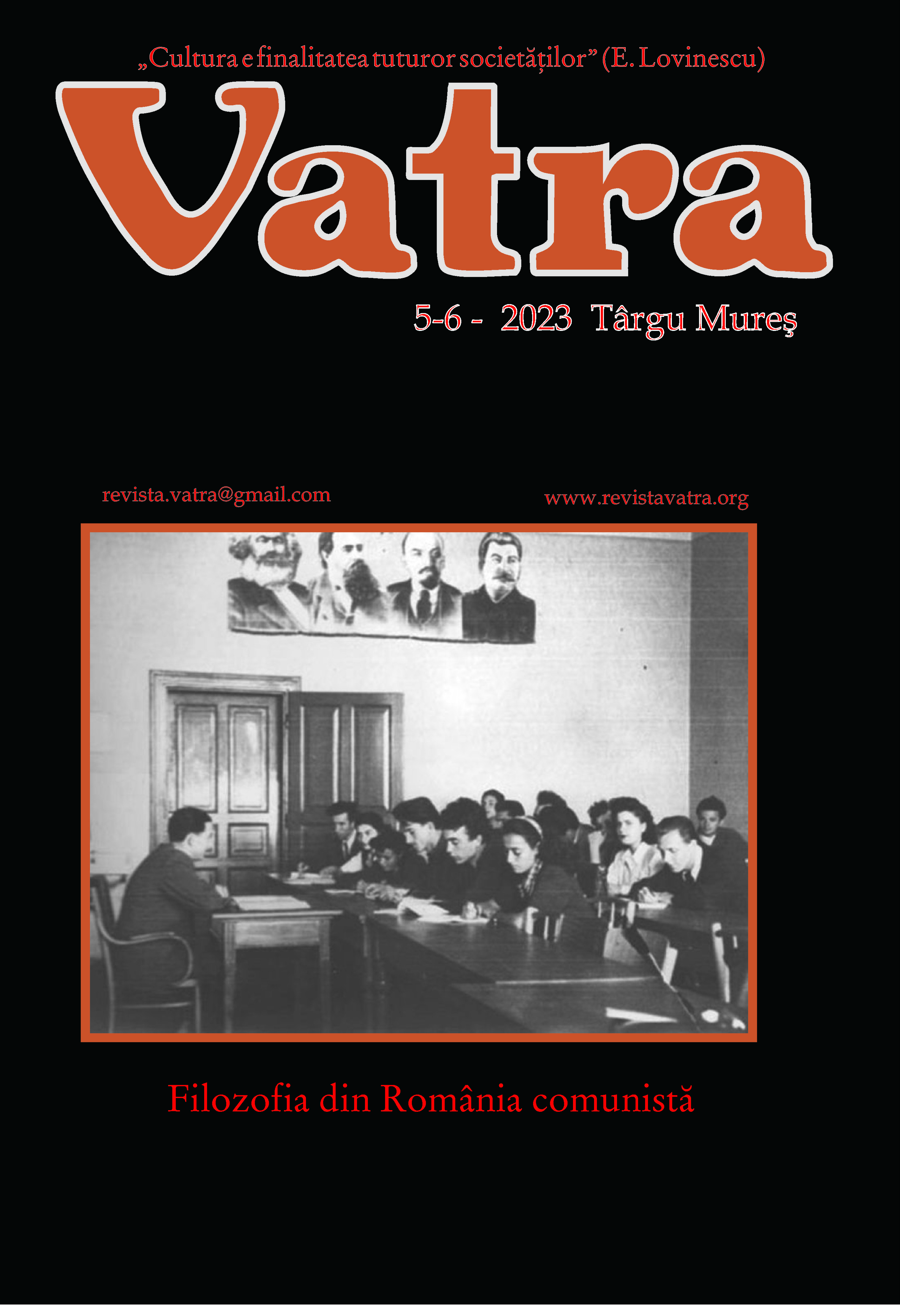
We kindly inform you that, as long as the subject affiliation of our 300.000+ articles is in progress, you might get unsufficient or no results on your third level or second level search. In this case, please broaden your search criteria.

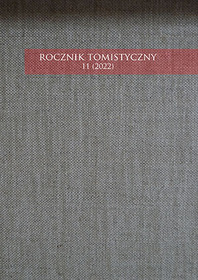
The integral concept of pleasure seeks the answer to the question what various experiences of pleasure have in common. While contemporary philosophy partially capitulates before responding to this question, the integral and unifying concept of pleasure, ancient philosophers eagerly took up this thread and tried to elaborate on the essence of experience or the state of pleasure so as to be able to indicate its essential and inalienable element in various experiences. The aim of the paper is to present the three greatest concepts of pleasure in ancient philosophy: Platonic, Aristotelian and Epicurean. Although at the root of all three concepts is the same question and the same research problem to be solved (i.e. “what is pleasure in its essence”), the answers to this question were quite different. For Plato, pleasure is some kind of change in the soul or body (kinesis), he emphasized the nature of pleasure as a process. Aristotle, in turn, recognized pleasure not as a process, but as an activity, more precisely as a quality built on activity. The views of both philosophers can be considered “metaphysical”, i.e. they sought to answer the question about pleasure in terms of the nature and structure of this experience. Many scholars of ancient thought find inspiration for these concepts in ancient medical thought, especially the doctors of Hippocrates and Polybus of Kos. Similar influences are noted in the case of Epicurus’s concept of pleasure: although we would consider his concept as ethical rather than metaphysical, the relationship between Epicurean philosophy of pleasure and medicine is twofold. On the one hand, like Aristotle and Plato, he was influenced by the medical thought regarding the explanation of the nature of pleasure and pain, on the other hand, the influence of epicureanism, e.g. on medieval Arabic medical thought.
More...
There is widely known disagreement between Thomas Aquinas and John Pecham which concerns the plurality of human being. The problem of unity of form is by Thomas Aquinas related to other issues such as the one (unum), which is a transcendental property of being. Acceptance of plurality of forms – as Aquinas claims – renders the possibility of the unity of being simpliciter. Similarly esse, which by the rational soul is implemented into the wholeness – compositum, must be the only existence of being. When we agree that there are many forms in the structure of human being, and each of them would be responsible for constituting a particular essence respectively, it would be impossible for the genuine creation and perishing of being to happen. For instance, intellectual part would perish, but corporeal, would remain. The entire annihilation of man would take place only when the last form was annihilated, as this form in the first place must have been regarded as the substantial one. The presentation of views and arguments of Thomas Aquinas on the unity of substantial form in human being has been divided into four parts. The first concerns the problem of rational soul as the substantial form. The next regards the question of the matter in the context of a debate on the unity of substantial form. The third concerns the question of creation of man (animatio). The fourth hence, introduces philosophical views of Thomas Aquinas regarding the ontic status of both, the living and dead body of Christ. Although the latter concerns theological issues, it concerns philosophical matters.
More...
The undertaken considerations in the presented article belong to the broader context of metaphysical analyzes concerning one of the aspects of the creative action of the Absolute, which is the preservation of the world in existence (conservatio mundi). This issue is considered from the perspective of created substances and therefore it is expressed in the question of whether they have the possibility of non-existence, which, based on Thomas Aquinas’ creatio ex nihilo theory, is tantamount to the question of whether they were created by God in destructible natures and as such they aim at to self-annihilation. The negation in the substantial order of the disposition to non-existence in contingent beings seems to justify the conclusion that their duration is founded not only in the divine act of preserving in existence but also in their inherent nature, which is oriented rather towards being than non-being. In order to solve the problem formulated in this way, in the first place, the principles responsible for the destructibility of beings will be analyzed, then the considerations focus on the necessity of the existence of created substances, and the whole is completed by the presentation of the relation between contingency and destructibility.
More...
The paper presents an analysis of Thomas’ thought on the virtue of modesty and shows its relation to temperance and nobility. The matter of modesty is of lesser importance in the ethics of Thomas Aquinas. The virtue of modesty is subordinated to the virtue of temperance and its role is to help us shape our external steps and actions in order. When speaking of modesty Thomas willingly turns to the views of Cicero and Andronicus. In the Summa, in its parts dedicated to temperance, Aquinas analyses all kinds of modesty. Important among them is humility, which directly pertains to temperance. Its subject is to regulate our desire to be exceptional. Hence, humility gives us ability to proper self-esteem. All other virtues, which are kinds of modesty, regulate: our longing to knowledge, attitude toward neighbours, ways of spending our leisure time, ways of dressing up. Thomas points out in his texts that the process of achieving the virtue of modesty is not a complicated task, because its object does not cause any particular difficulties. Not as in the case of moderation, which needs auxiliary virtues in order to restraint our strong natural craving.
More...
Celem artykułu jest przedstawienie i omówienie koncepcji afektywności w ujęciu Ryszarda od św. Wiktora. Dokładniej, artykuł próbuje pokazać, w jaki sposób afektywność jest płaszczyzną, platformą i jednocześnie narzędziem w duchowej przemianie człowieka. W pierwszej części omówione zostanie tło historyczne powstania szkoły Św. Wiktora, a w szczególności zostanie ukazana sylwetka samego Ryszarda. Kolejne dwie części będą dotyczyły problemu afektów: oczyszczenia afektów i przygotowania ich do ekstazy (część druga) oraz angażowania afektów podczas ekstazy (część trzecia). Artykuł przedstawia ogólne rozumienie afektywności przez Ryszarda. Następnie artykuł skupia się na alegorii tropologicznej z dzieła Beniamin maior i pokazuje, jak przemiana uczuciowości staje się warunkiem koniecznym przemiany moralnej w koncepcji Ryszarda i w konsekwencji – przygotowania do mistycznej ekstazy. Celem trzeciej części jest odpowiedź na pytanie, w jaki sposób afekty uczestniczą w mistycznej ekstazie i jaką rolę odgrywają w tym zakresie.
More...
The article is dedicated to the abbreviation of Nicomachean ethics written by Wrocław Dominican John of Ząbkowice (in manuscripts: „Johannes de Franckenstein”). The text, titled Auctoritates ethicorum, is preserved in only one manuscript – Wrocław, Bibl. Univ. Wrocł., ms. IV Q 52, scriptum per manus Johan-nis de Franckenstein – together with Auctoritates politicorum, Auctoritates yconomicorum and Auctoritates rethoricorum. The authorship of the texts is not certain, but in the previous works of histo-rians it is attributed to John (that thesis is followed also by Ch. Lohr listing the Aristotelian medieval commentaries, and by T. Kaeppeli in his compendium on the medieval Dominican scriptores). Only the part of Auctoritates ethicorum has been edited so far: the fragment, concerning the geometrical model of economic exchange and nature of money from the Book V. The author of the article published it in his book Zagadnienia ekonomiczne w nauczaniu wrocławskiej szkoły dominikańskiej w późnym średniowieczu (Wrocław 2004); this fragment was later referred in details also in the book of the same author: „Oeco-nomica mediaevalia” of Wrocław Dominicans. Library and Studies of Friars, and Ethical-Economic Ideas: the Example from Silesia (Spoleto 2010). The sources of the text of Auctoritates ethicorum are the following: translatio Lincoliensis of the Aristotelian text, Sententia libri ethicorum by Thomas Aquinas, paraphrasis of Ethica by Albertus Magnus, and Summa Alexandrinorum (called translacio arabica). The fragments of the Book IV and Book V, described in the article, shed light on the method applied in the Auctoritates. Summa Alexandrinorum is quoted in the description of the virtue of liberalitas. Writing about diversity of artes and occupations the author cites Albertus Magnus, quoting after him the sentence delivered from Michael Ephesius, erroneously attributed to Eustratius by Albert. However, the Albertinian reference to the role of compensation of labores & expensa is omitted. The author of the Auctoritates refers mainly to points the common to St. Thomas and St. Albert.
More...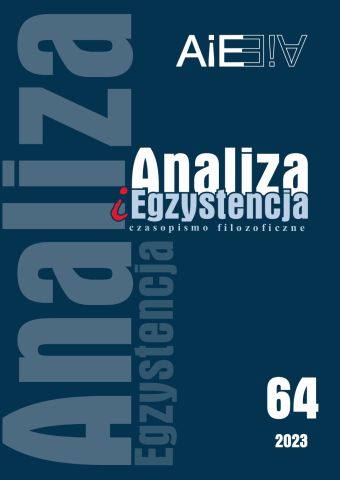
In general, epistemic emotions can be characterized as emotions that concern the subject’s own states and mental processes and are associated with cognition and knowledge acquisition. They are the result of a cognitive inconsistency that may appear as a consequence of unexpected information that contradicts previous knowledge. They significantly impact the exploration and generation of knowledge about oneself and the world, as well as on conceptual changes and cognitive efficiency. There is no interspecies comparative perspective in experimental studies on epistemic emotions. At first glance, this situation is not controversial, because the category of epistemic emotions has been defined in such a way that it seems to belong only to people. Inconsistencies arise when comparative research in the field of cognitive ethology, primatology or comparative psychology is analyzed. Researchers point to a number of behaviors of nonhuman animals that prove that they have a wide range of emotions – including those that stand out in the catalog of epistemic emotions, i.e. surprise, curiosity or uncertainty. The presented article is an attempt to answer the questions posed in the title and an introduction to research on an adequate model of epistemic emotions, taking into account the results of research in the above-mentioned areas.
More...
The article shows the inadequacy of understanding micro-objects in terms of the ontologies of substantial individual beings and the irreducible metaphorically of such concepts as „particle”, „wave” or „individual object”. An attempt was made to construct the concept of a quantum object as a conceptual blend, using the blending theory.
More...
The functions of new metaphors in early tantric Buddhism are analysed in the paper. Two models of religious practice are concerned. According to both of them, the goal of tantric practice is permanent modification of the practitioner’s cognitive activity. That modification can be understood as willingness to implement particular metaphors spontaneously into the process of perceptive data interpretation. Those metaphorical concepts are closely related to the conception of buddha nature. Religious practice of Vajrayāna can be seen as striving for experiential substantiation for the main of those metaphors (mind is mandala). Special act of visualization in ritual context is expected to be such substantiation. Six types of metaphors important in the soteriology of the early Vajrayāna can be distinguished. All of them are discussed in the paper.
More...
The presenting article presents the main themes of Piotr Semenenko polemics with Andrzej Towiański, which took place in the environment of the Great Emigration. It concerned many matters, including some philosophical ideas related to the Catholic faith. They belonged mainly to fhe field of interest in the philosophy of cognition, general theory of being, philosophy of God and religion, angelology, philosophy of man and philosophy of history. Semenenko’s polemic with Towiański resulted from their representing different philosophical traditions. The first referred essentially to Thomistic philosophy, while the second drew from ideas to Neoplatonic philosophy and the currents of thought that were close to it, which cannot be reconciled with the Thomistic and Christian vision of the world, especially in the matter of understanding its most important elements, which are God and the human person. The use of Thomism in the fight against Towianism has shown that it is the form of Christian philosophy that best serves the Catholic faith as its intellectual foundation, which seems important in the context of current discussions about the doctrinal shape of this faith and its threats from religious syncretism.
More...
This paper is an attempt to show the Thomistic approach of the ontic structure of norm for conduct of created rational beings. The basis for the statements is Treatise on Law of St. Thomas Aquinas (Summa Theologiae I-II, q. 90-97). There has been two external causes described, that is a formal cause, which shows the pattern of acceptance for a particular norm, and a material one, which is decisive with regard to its content. Additionally, the formal cause decides on the method of promulgation (announcement of co-ming into force) of the norm and on the method of its enforcement (coercive force, sanction). The content of norm (material cause) who is the object of the above protection cannot be any content, but a derivative of permissions subjected in nature (ius civile, ius gentium) and read out adequately by the intellect in the most possible way. Hence, natural law is the resultant of that what is subjected in the nature and the intellectual activity of man who attempts to cognize and articulate the nature. Such understood natural law is, according to Thomas Aquinas, a common fundament for various normative systems (ethics, morality, statute law and common law). The external causes of norm are hence the final cause which answer to the question on the purpose of norm (why do we establish a norm?) and the efficient cause which shapes the matter (content) of norm, and establishes its validity (form). The feature of the efficient cause is its competence for establishing norms present in its ability to secure the norms with a sanction. According to Aquinas, we find a fundament for any norm in the nature of reality whose reading from the normative perspective establishes a natural law. Any other normative systems are binding only when they participate, as specification for example, in natural law.
More...
In the book we recommend, Zbigniew Zdunowski who taught philosophy and ethics for thirty years, shares his experience on how to speak of the perennial philosophical questions in a demanding environment of the contemporary high school. The work begins with the Word from the Author. Next, there are two parts divided into chapters. The first part With Philosophy Through Life consists of: I. Philosophy Introduces Itself, II. How Many Philosophical Words There Exists?, III. Almost Everything on Love, IV. Philosophy in Search for Freedom, V. The One Truth or The Many Ones?; Part II With Ethics Closer to Life: I. Ethics Introduces Itself, II. Is It Possible to Define Goodness? Three Steps to Understand Goodness, III. Problems with Man, IV. Ethical Aspects of Euthanasia, V. Aftermaths of the Black March, IV. Genderism, VII. On Tolerance From Another Perspective, VIII. How to Discuss with an Ethical Relativist. Next is the Summary and the Index of Names. Many chapters encourage to develop our interest in philosophy in appendices- Invitation to Thinking, there is also a part for more ambitious readers- as the Author calls them- The Short Logical Appendix, and finally there is a proposal titled How to Discuss with the Ethical Relativists When Arguments Fail? The Author prepared a wide variety of materials to which we, encouraged to critical thinking, may turn in various debates. Although the work refrains from offering a systematic study on philosophical schools, it can be an inspiring source for any reader interested in a deeper reflection on the variety of existential issues.
More...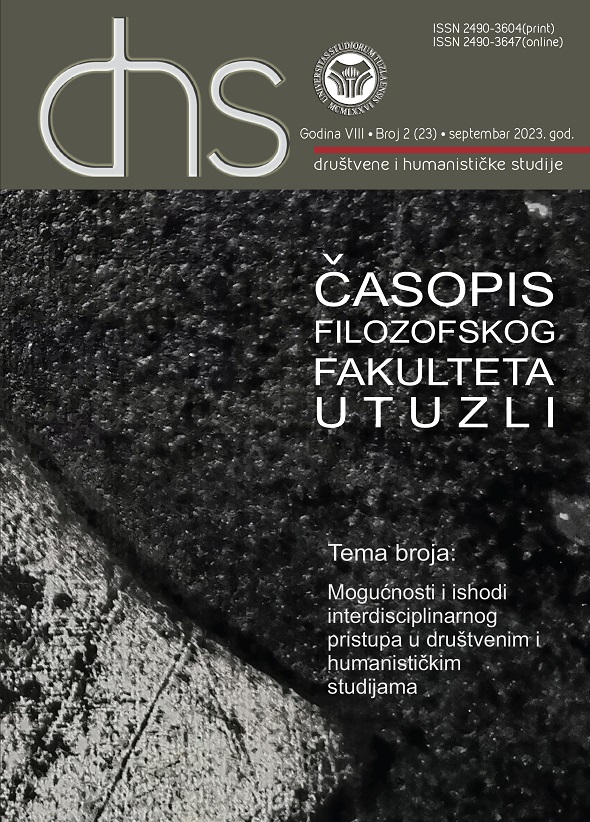
The paper discusses the concept of interdisciplinarity from the perspective of humanities and social sciences. As both an idea and practice, interdisciplinarity is understood within the context of the complex dynamics of creating and reshaping institutional arrangements that regulate the processes of knowledge production, distribution, and instrumentalization in Western society, with universities, research centers, and departments at its core, organized according to separate academic disciplines. The paper questions the understanding of disciplines as closed, homogeneous, and static structures of knowledge organization. Instead, it reflects on the complex, multiple, and topological relationships of mutual interpenetration and constitution of disciplines, emphasizing their inherent hybridity, especially within the context of the synoptic identity of humanities disciplines. Furthermore, the paper highlights the moral assumptions underlying interdisciplinary research initiatives. The productivity of the conceptual framework concerning the centralistic, pluralistic, and integralistic models of interdisciplinarity is highlighted in analyzing the possibilities and outcomes of interdisciplinary approaches in social and humanities studies.
More...
This paper deals with an overview of the development of the philosophy of science in Croatia. The philosophy of science deals with the problems of the natural sciences seeks the meaning of science, and rationally looks at science from different aspects as its material object. In Croatia, the philosophy of science developed as in other European nations, therefore inseparable from the development of natural sciences and the social context. The paper presents some of the most significant representatives of philosophers and events that influenced the development of the philosophy of science in Croatia.
More...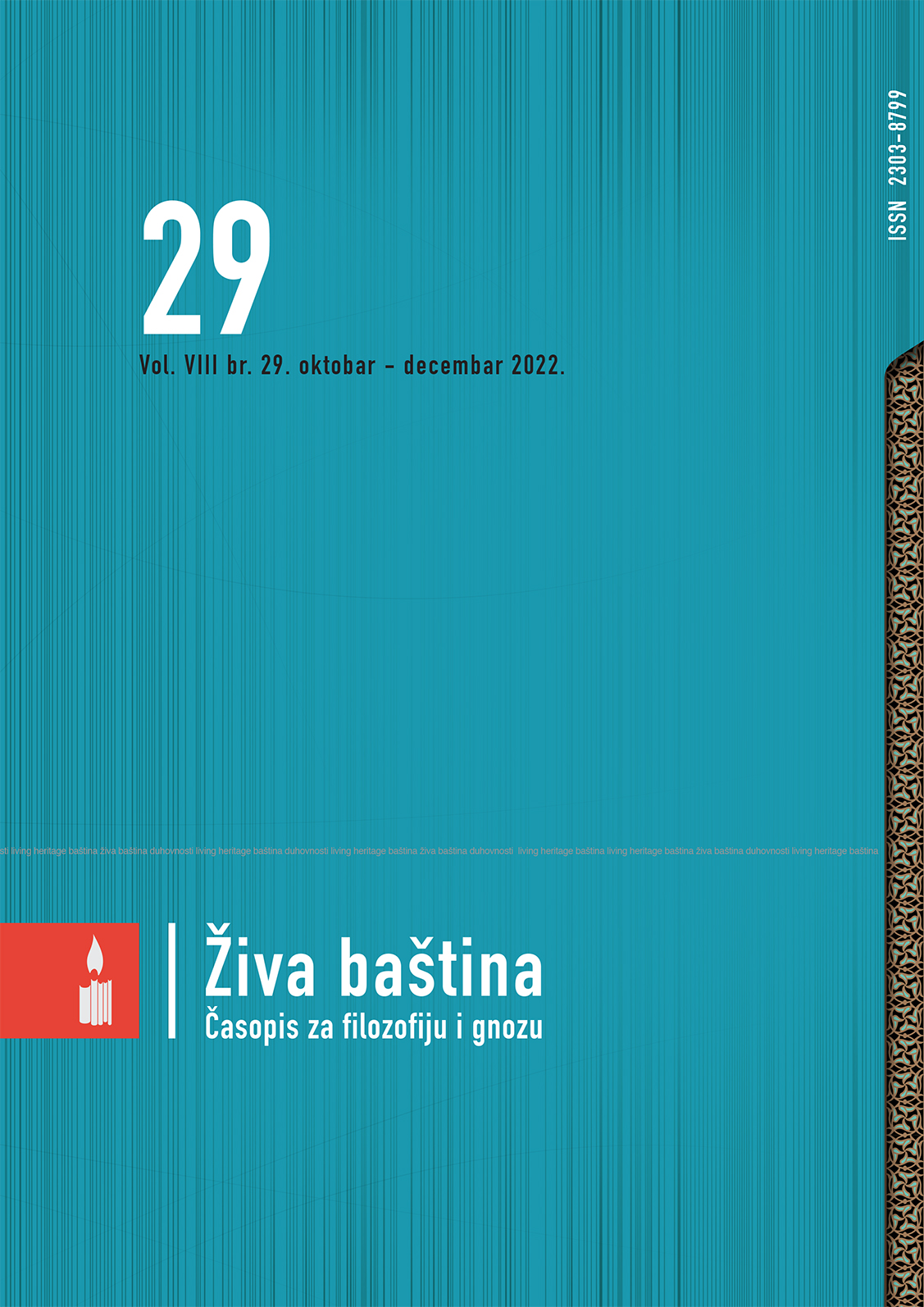
Alongside his much-discussed theory that humans are permanently, if only tacitly, self-aware, Avicenna proposed that in actively conscious self-knowers the subject and object of thought are identical. He applies to both humans and God the slogan that the self-knower is “intellect, intellecting, and object of intellection (‘aql, ‘aqil, ma‘qul)”. This paper examines reactions to this idea in the Islamic East from the 12th-13th centuries. A wide range of philosophers such as Abu al-Barakat al-Baghdadi, Fahr al-Din al-Razi, al-Shahrastani, Sharaf al-Din al-Mas’udi, al-Abhari, al-Amidi, and Nasir al-Din al-Tusi raised and countered objections to Avicenna’s position. One central problem was that on widely accepted definitions of knowledge – according to which knowledge is representational or consists in a relation – it seems impossible for the subject and object of knowledge to be the same. Responses to this difficulty included the idea that a self-knower is “present” to itself, or that here subject and object are different only in “aspect ( i‘tibar)”.
More...
Although he is one of the most significant figures in the history of Islamic philosophy, Suhrawardi had a very short but fruitful life, filled with travels and the acquisition of knowledge since childhood. However, his knowledge and dominance in debates earned him many enemies, which eventually cost him his life. Among Suhrawardi’s works known as “short visionary epistles” is Risāla fī hālāt el tufliyya (Epistle on the states of childhood). This epistle talks about the process of acquiring knowledge before a spiritual teacher.
More...
Review of: Željko Kaluđerović, Rana grčka filozofija, Hijatus, Zenica, 2017, str. 182.
More...
Review of: ‘Ayn al-Qudāt, The Essence of Reality: A Defenseof Philosophical Sufi sm, New York UniversityPress, New York, 2022, xxx, 241 str.
More...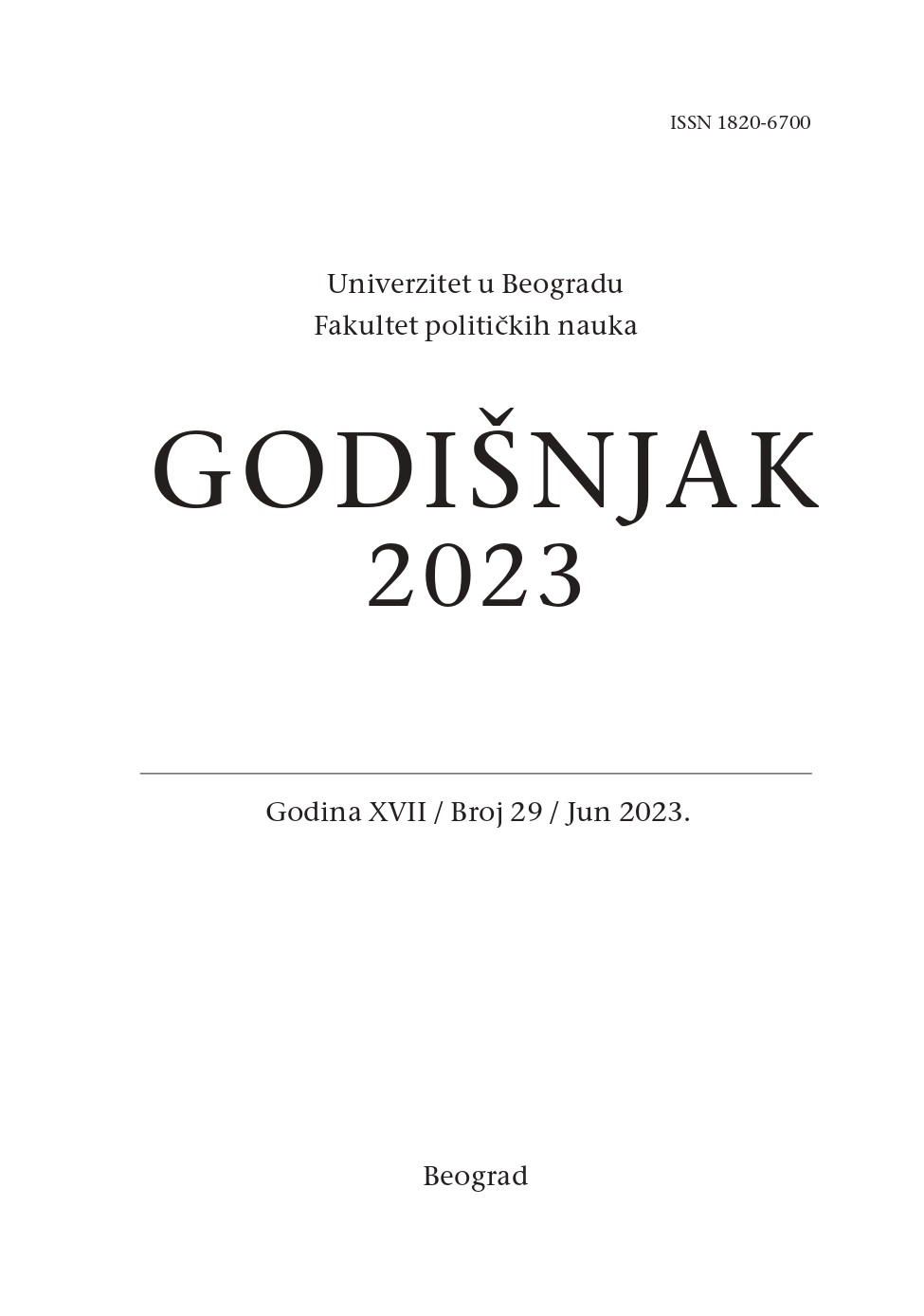
The author aims to show the correlation existing between the structure and the action in both political theory and practice, accentuating the thesis that in both cases the advantage is given to the structure, which limits the action and makes it acceptable only if it complies with the structure. As the case study, the author takes the relationship between Marxism and Anarchism, seen through the prism of Georgi Plekhanov’s criticism of the Anarchist thesis that it is essential to liberate the action from structural determinism. Analyzing Plekhanov’s application of the Marxist method on the analysis of the essence of Anarchism, the author points to its potential weaknesses and contradictions, aiming to search for the middle ground solution which, while admitting that action is conditioned by structure, gives the idea and will in politics the same level of importance.
More...